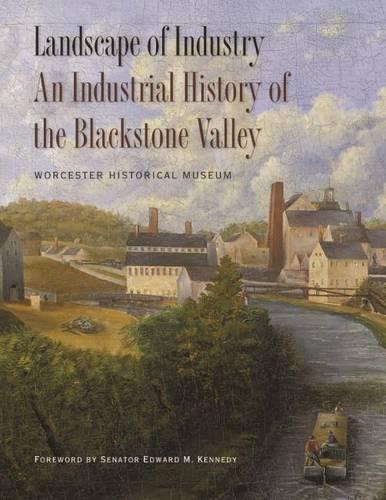The Blackstone River is sleepy as it twists and turns from Worcester to Pawtucket, R.I. Yet 200 years ago the Blackstone was a whirring engine of the American Industrial Revolution. Slater Mill in Pawtucket was the nation’s first successful water-powered cotton-spinning mill. The area was instrumental in the shift from an agricultural to a manufacturing economy. To celebrate the region’s past, University Press of New England and the Worcester Historical Museum have produced Landscape of Industry: An Industrial History of the Blackstone Valley. Old maps, prints, and photographs illustrate essays by historians and National Park Service rangers.









